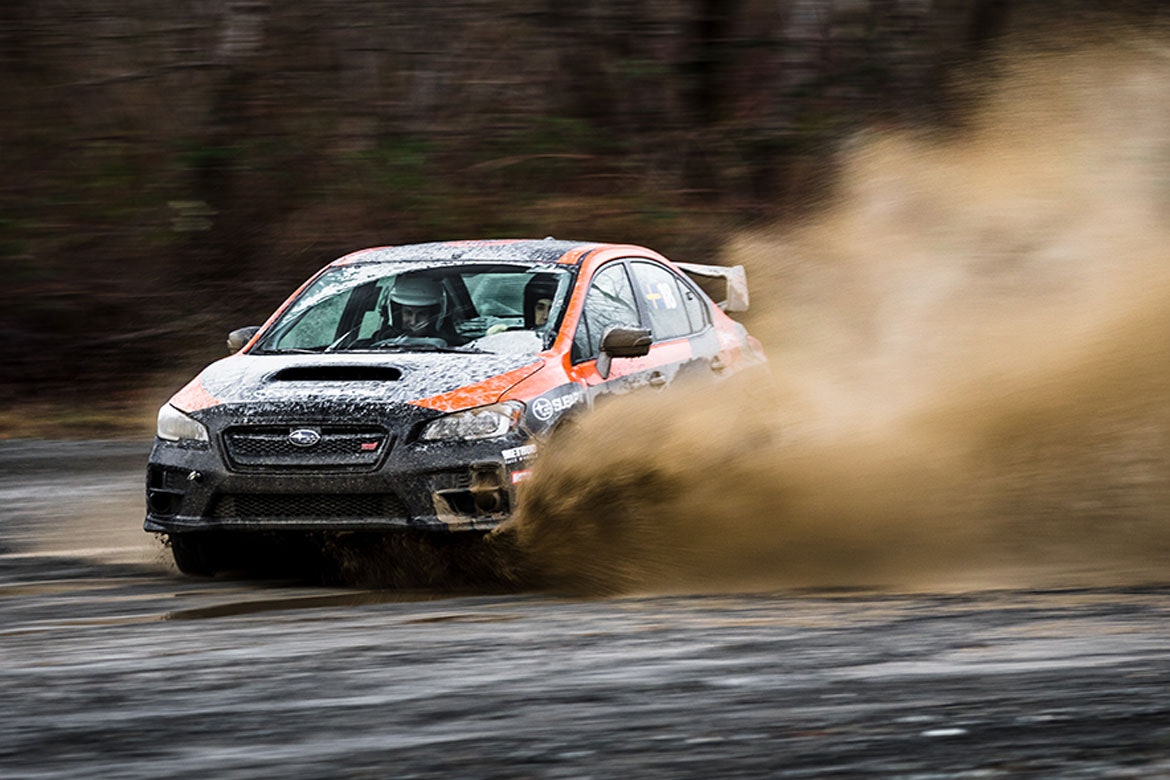This weekend’s Barum Rally Zlín was always likely to be one to remember for Efrén Llarena. His championship lead was sizable enough that he was very likely to fly home from the event with a maiden European Rally Championship title in his pocket.
But instead, Llarena flies to Barum Czech Rally Zlín with the ERC title already secured, thanks to closest championship rival Simone Tempestini pulling his entry. There’ll be a presentation this evening before the rally begins to commemorate his success.
It’s perhaps not the way Llarena would want to seal the deal – certainly not the way he would have imagined he’d win – but he’s far from the only rally driver to claim a major championship trophy in unorthodox and unconventional circumstances.
So no, we’re not talking nail-biting finishes to the end or even a smash and grab like Andreas Mikkesen’s 2011 Intercontinental Rally Challenge success, as everyone knew the adjusted points coefficient; rather the bizarre ways in which a championship was ultimately settled.
As you’re about to discover, this isn’t even the first time Llarena has won a championship the weird way either.
Sat at home half the world away
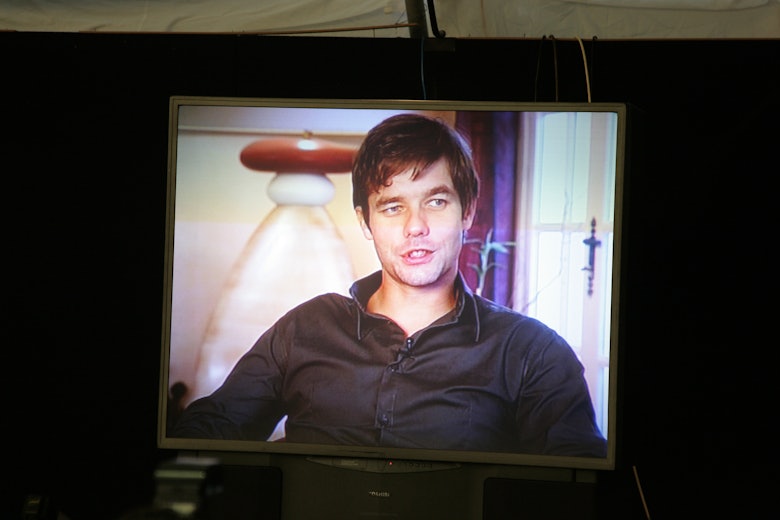
Perhaps the most famous example of a bizarre championship win, Sébastien Loeb won the 2006 World Rally Championship title two rounds early while sitting on his sofa at home.
From the Monte Carlo Rally in January to Cyprus in September, Loeb was utterly flawless – winning eight rallies and finishing runner-up the four times he missed out on the top step.
But an accident away from the stages while on his mountain bike ruled Loeb out of the rest of the season, opening the door for Ford’s Marcus Grönholm to steal an unlikely championship from Loeb’s grasp.
However, to do that, Grönholm couldn’t afford to finish outside the top three in Australia following victory in Turkey. But a crash from the lead on the third stage dropped him to 56th place – and despite a strong comeback drive Grönholm couldn’t make it any higher than fifth, putting the title out of reach.
Loeb, who recently revealed that he had been plotting ways to compete in the finale in Wales as a co-driver to Colin McRae in an unusual attempt to score championship points, was placed in the bizarre scenario of celebrating a title while not even at the rally.
Giving a TV interview in a hotel reception
Tommi Mäkinen thought he had blown his shot at a third consecutive world title in 1998 when he encountered a patch of oil left behind by a historic car, slid wide into a concrete barrier and ripped the rear-right wheel off his Mitsubishi.
He held the points advantage over Carlos Sainz heading into that GB finale, but with that crash – in the days of no super-rally restart rules – Mäkinen was ultimately powerless to stop Sainz from sealing his own fate. Fourth place was all he needed to win the crown.
And that’s exactly where Sainz was lying before the 28th and final stage: Margam Park.
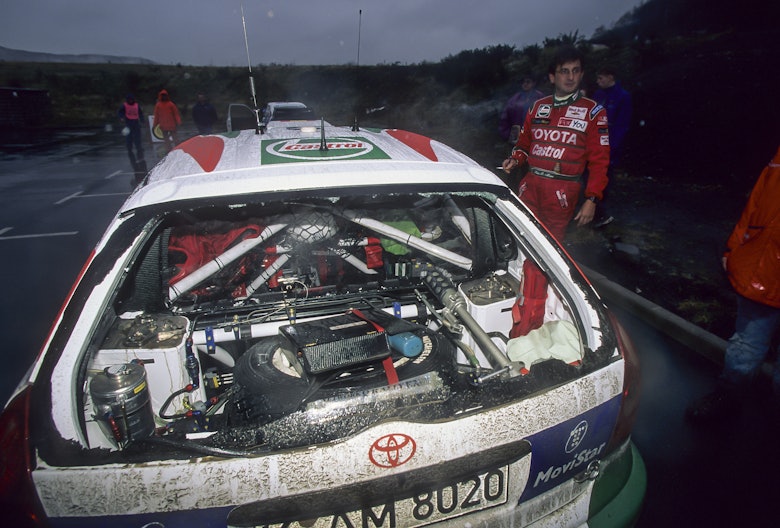
Mäkinen was giving an interview to Finnish TV when he got a phone call from his brother. Why? Something to do with broken glass and a helmet lodged in the trunk of a Toyota Corolla.
Sainz’s engine had blown, just a few hundred meters from the finish line. Mäkinen ditched the interview, headed back to the service park and celebrated a title he was convinced he had lost.
In the courtroom
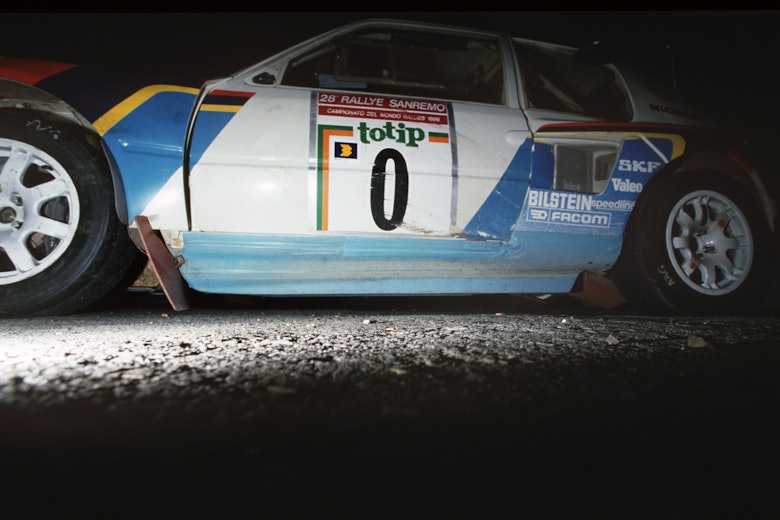
The 1986 World Rally Championship season certainly won’t be forgotten after the unacceptable number of spectator and competitor deaths cast a dark cloud over rallying and killed the Group B era.
Such a season was always destined to end in controversial circumstances, and that’s exactly what transpired.
Peugeot Juha Kankkunen and Lancia’s Markku Alén headed into the final round in America locked in a winner-takes-all battle for the final drivers’ title of the Group B era. And it was Alén who ultimately conquered, finishing 1m26s up the road from Kankkunen.
But it wasn’t that simple. The destiny of the championship hung in the balance as Peugeot had protested the result of Rally Sanremo two months earlier. All of the works 205 T16s had been excluded for allegedly illegal side skirts, allowing Alén’s Lancia to take victory.
But the governing body FISA had declared the side skirts legal, so the Italian organizers were ultimately blamed for excluding the French Peugeots and allowing the Italian Lancias to win.
When Alén had won the Olympus Rally, he was world champion. But 11 days later, the court of appeal ruled in Kankkunen and Peugeot’s favor, handing Kankkunen the world championship title a week and a half after losing it on the road.
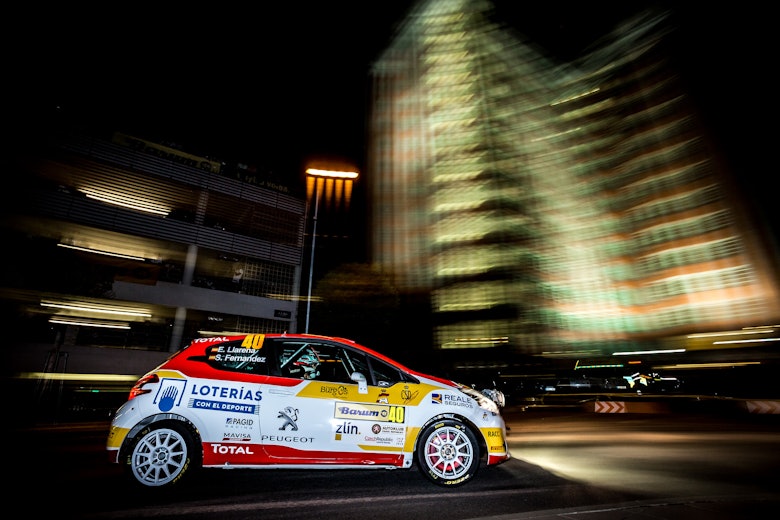
But this is also where Llarena loops back into it. His ERC3 Junior title was initially only his after a stewards’ decision handed him victory after the finish and was followed by a long wait for the outcome of an appeal by his chief rival – coincidentally again on Barum Rally Zlín.
It all revolved around notional times. The final stage had been stopped twice because of two crashes, triggered a red flag before any R2 cars had set a time. Jean-Baptiste Franceschi had been given the same time as Llarena and the rest of his rivals – winning the rally and preventing Llarena from scoring the points needed to beat Franceschi’s Orsák Rally Sport team-mate Ken Torn to the title.
But Franceschi’s Fiesta R2T19 had developed a technical problem on that final stage, which made his notional time unfair. After much deliberation it was adjusted to be one minute slower, dropping him to fourth and handing Llarena the title and the prize fund.
That wasn’t the end of it, as photos from the final stage suggested that Llarena’s front-right tire had come off the rim before the red flag. With Erik Cais only four seconds behind, it would likely have had an impact on the final standings. Torn’s team protested and several weeks passed before their appeal was rejected – which, at long last, confirmed Llarena’s title.
After a final stage puncture
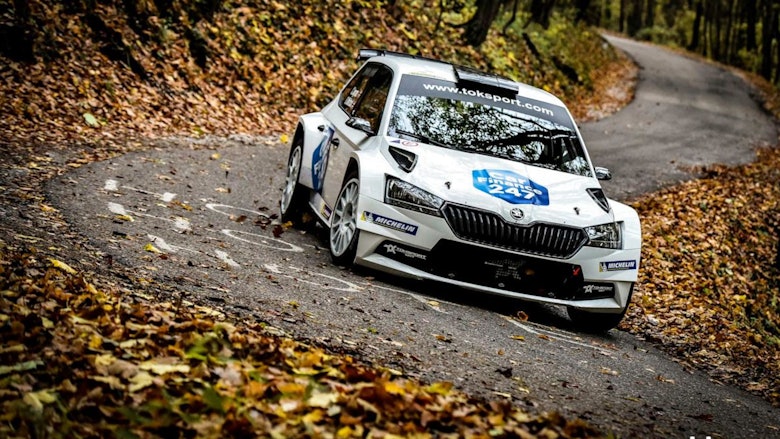
In most circumstances, on most rallies and after most stages, arriving to the final stop control with a puncture would signal the end of a driver’s bid to win. It stings particularly more when it’s not the win of the rally that’s at stake, but the championship.
This was Chris Ingram’s reality on Rally Hungary, 2019. It had been a draining season where Ingram had missed out on the ERC1 Junior title by just 0.3 seconds. Most pertinently, that cost him €100,000 – bad for anyone, but catastrophic for a cash-strapped Ingram.
However, he made it to Hungary and was doing what he needed to win the title. Rival Alexey Lukyanuk was leading, but third place secured enough points for Ingram to cling on. That flat Michelin looked to have ripped the title from his grasp.
Norbert Herczig had also punctured, meaning Ingram didn’t lose a place to him, but Callum Devine had vaulted them both by winning the stage by over a minute.
However, fortune favored Ingram. The exact same fate had befallen Lukyanuk and he lost the rally win to Frigyes Turán. With Lukyanuk second, fourth was enough for Ingram to become European champion despite not winning a single rally.
By winning the final stage
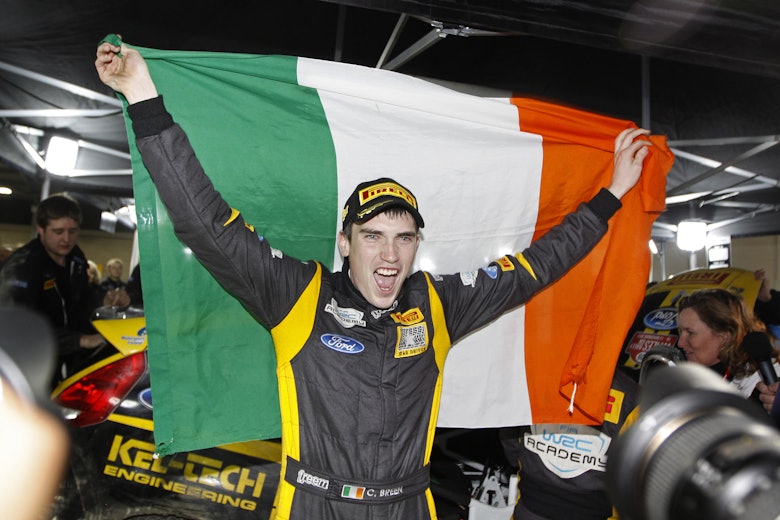
Those that were there will never forget it. Craig Breen was anxiously waiting, wondering if his second attempt of Myherin had been enough. Such was his pace over the course of that Rally GB 2011 weekend, Breen was 12 cars ahead of Kaur on the road and had a sizable wait.
And that final stage time really mattered. In a scenario that wouldn’t have been out of place in a Hollywood movie, Breen and Egon Kaur’s WRC Acaedmy title dispute all hinged on who was quicker on the last test of the season.
Breen was over four minutes clear on the rally, but with one point for each stage win on the line, he needed to win the rally and win a minimum of 14 out of 17 Welsh stages to take the crown from Kaur, if Kaur was second – which he was.
Breen had ceded the first pass of Great Orme, Dyfnant 2 and Hafren 1 but had been quicker on all of the other stages prior to Myherin 2. If Kaur beat him, he would win the championship by one point. If Breen did him, he would win the title on countback.
Breen’s run towards co-driver Gareth Roberts was the realization that the pair had gone 7.1s faster and won the title. No driver in the history of the WRC has ever won a title since by simply winning the final stage.
By going third fastest on the first stage
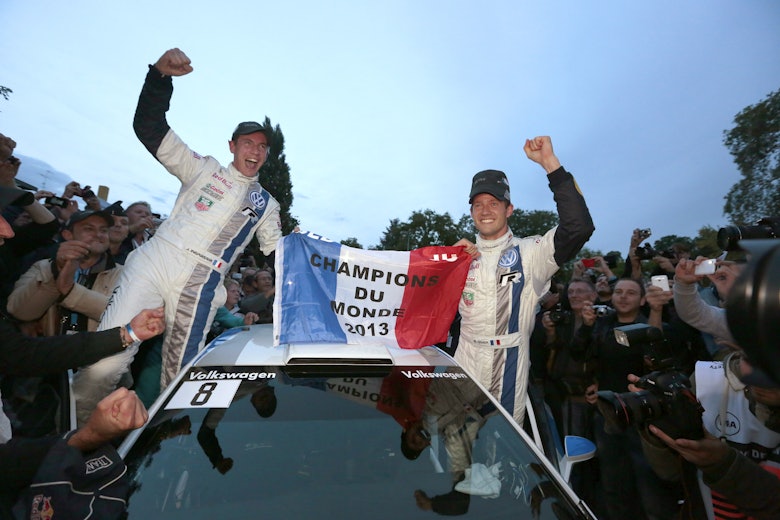
Sébastien Ogier had been set to win his first WRC title at Rally Australia back in 2013, but for a Mikko Hirvonen puncture to elevate Thierry Neuville to second and prolong the coronation by another two and a half weeks.
Ogier needed to score just one point on Rally France Alsace (round 11 of 13) to net the title and strangely Thursday evening gave him an extremely early opportunity to do so.
While the majority of WRC powerstages are held at the end of the event, the Strasbourg street stage on the first evening offered the top three fastest drivers the chance of points.
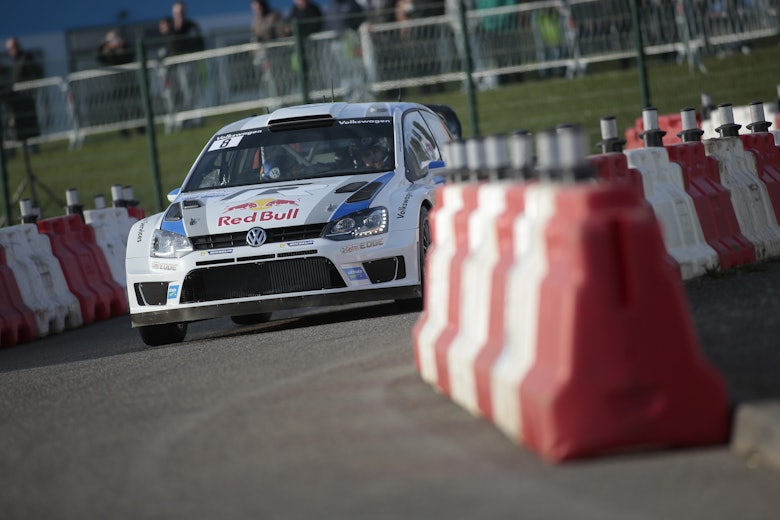
Ogier duly went third quickest, one-tenth down on Neuville (the only driver capable of stopping Ogier), and won the world title after the first stage of the rally.
Much like Llarena will this weekend, Ogier effectively attacked the rest of the rally as a celebration of his season-long achievement.
Ogier won, although he was off the pace on the first day – perhaps as a result of the title being sewn up.





